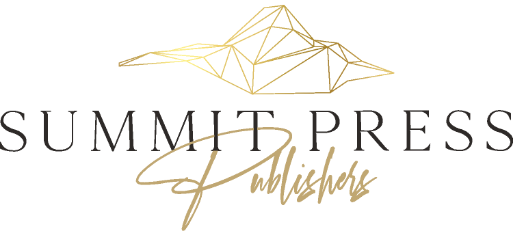12 Horrific Things About the Publishing Industry You Need to Know To Safeguard Your Wallet
When I came out of grad school, writers had to bank on traditional publishing houses to choose them for a sense of worth and/or credibility. You could self-publish—it was called vanity publishing then—but that had all the panache of finding a spouse in the classified section of a newspaper. So not cool! Maybe, even a little pathetic.
But then the publishing industry basically imploded in 2008 thanks to the market crash. Amazon entered the fray a year later, and all bets were off. Publishing became the wild wild west.
Despite the numerous (and might I add respectable) publishing options available to folks who want their book out in the world, the old dream of the book deal is very much alive and well.
Traditional publishing is still the brass ring many writers reach for.
If you have a similar dream, I’d like to share some facts about the industry you may not be familiar with only because you haven’t spent the last fifteen years operating in this world…some truths I found horrific the first time I smacked into them. These insights will also help me explain why writing a check to a hybrid publisher may be SO much cheaper than receiving one from a traditional house.
You still get to choose to head down this road with your book in hand—I help authors evaluate this option all the time—but do so with your eyes WIDE open.
1. Good writing does not guarantee the interest of a traditional publishing house
The hardest thing to stomach is that, even if you’ve written a book 10X better than anything currently on the market, NO ONE in the traditional publishing world will care. No one will clamor at your door or fight for the chance to raise you from obscurity because you write so goshdarn well.
Look, we’re all about polished writing at Summit Press Publishers. We’re interested in well-written powerful books that stand to change lives. But that’s NOT what the book industry is about on the whole.
Am I saying that traditional publishing houses aren’t interested in well-written books that stand to change lives? No, of course not.
What I am saying is that they require ever so much more.
For a big traditional publishing house to take an interest in you and your prescriptive non-fiction book, you’ll need at least two of three things. A big platform, a hot topic, and/or that extremely well-written book.
Let me expound.

Does your well-written book cover a topic that’s taken the country by storm?
Think Michael Lewis, author of Premonition, who’d been researching the story of an epidemiologist in California who knew that a pandemic was about to hit…..JUST AS COVID breaks!
Do you have a well-written book AND a platform?
If you don’t know what that word means, that’s OK. But that’s also a sign that you don’t have one. So, let me explain.
Big houses want to be your friend if you have a massive following of people actively engaged with your content. Now, I’m not talking 16k followers on TikTok (insert social media channel of choice); I’m talking 100s of 1000s of die-hard rabid fans who comment on your posts at all hours of the day and night and share your stuff with everyone they know…
Or 100s of 1000s who currently hand you money for your related products or services. Meaning you have a list, run a successful online business, and know how to market and sell your wares…
Or you’ve got lots of important and/or famous friends who do, who guarantee that they will go to bat for you when the book hits the market and bring in tons of sales.
Publishing is a business. Traditional publishing houses sell books; that’s how they keep the lights on. That’s how they monetize. They want a near guarantee that anything you produce will sell and that you can sell it; otherwise, you represent too significant a risk.
You may think you’ve got 3 aces, but they see a pair of twos.
2. Traditional publishing houses don’t buy non-fiction books; they buy book proposals
If you’ve got a full-blown non-fiction manuscript and you’re ready to publish, I’ve got some terrible news. Traditional publishing houses want to see a book proposal, not your manuscript, to help them determine if your book idea is salable and if you’re the one who ought to be writing it, as opposed to some sexier expert.
I can almost hear the psychic scream.
For God’s sake, it’s already done…. Can’t these people just read what I’ve written?!
No.
Let’s return to how traditional publishing houses make money: book sales.
A book proposal presents publishing houses with the necessary metrics to make a sound business decision. How many readers buy books on this topic? Within the last three or so years? Given the books currently on the market, why would anybody choose to purchase a book by you?? That sort of thing.

You won’t be able to tell how many books any one title has sold, but you can see its Amazon rating and the number of reviews. If a comparable title published in the last three years is #5 in the category in which your book would be housed and has 800ish 5-star ratings, you’re looking at a seller.
The traditional house is gambling on your book, particularly if you’re an unknown author. They need evidence that the book is likely to be a hit and that the house stands to win. Otherwise, some executive will have to lay off a bunch of poorly paid employees and give up the big annual bonus when the thing flops. And a significant portion of their acquisitions will flop, statistically speaking. It’s built into their business model.
Traditional houses are not in the dream business. (Neither is Hollywood, for that matter.) This is all about probability and profitability. Cold hard cash.
3. Book proposals take about six months to write, maybe more
Ever written a book proposal before?
Writing a book proposal is a lot like writing a dissertation for graduate school. Think 40-80 pages of goodness that argue why your book (idea) is salable and marketable in today’s market.
If that sounds easy enough…well…the first time I wrote a book proposal, I thought I would lose my mind. Unpleasant didn’t even begin to cover it.
All these years later, I’ve learned to do the job well. I got good at proposal writing by working with innocents who’d made a first-stab attempt and hated the results. As in, not a single agent would bite. (More on that next.)
Cost to have a proposal written for/with you? Typically, between $15k-$25k.
Oh, and 6 months of your time.

That means 6 months on top of the time necessary to write the book itself, then run it through the agent query process, the proposal shopping, the big book deal, and production…. But I’m getting ahead of myself. Authors in a hurry don’t like this much.
Reread that penultimate sentence if you want a book out now or next quarter.
4. If you want a traditional publishing house deal, you need an agent
Most folks don’t realize that manuscripts sent directly to a publisher are called unsolicited submissions. They’re usually thrown away or deleted unceremoniously; or, if you’re lucky, tossed into a slush pile and read, eventually, by a bleary-eyed intern that hasn’t slept since 2001. That’s the year most of them were born.
Unsolicited submissions have a negligable acceptance rate, meaning you have a much better chance of winning your state’s Powerball.
Enter the literary agent.
A literary agent is your interface with traditional publishing houses. They have relationships, insider knowledge, and a clear understanding of how this business runs. They’re schmoozing with the acquisition editors, reading the trade magazines, following the trends, and working all ends of the equation.
How do you find an agent, you ask? Before the advent of the Internet, you could find one by browsing through The Writer’s Market—an annual catalog that listed agent names, contact information, and specialties. (The Writers’ Market is also an online subscription site.) You can now dig up the same information on Google or in the acknowledgment section of competitive books.

Agents can also be tracked down at writers’ conferences, where they troll for new talent—writers with MFA’s, experienced authors, or that workshop participant everybody seems to be raving about. They’re also watching social media to see which posts are going viral. Who’s getting a lot of engagement.
Nowadays, they troll marketing and business conferences because that’s where the authors with huge platforms hang out. (Go back to #1) If you’ve got a real following, they’ll be sidling up to you; never fear.
They’re also conversing with their current authors, who will make introductions to noteworthy friends. (Connections and relationships really matter.)
Tracking down an agent isn’t the hard part; getting an agent to pay attention to you is the trick.
Even if you miss the chance to pitch in person and wow her with your knowledge of Jim Collins and James Clear or have no author friends who can pave the way, you can still grab an agent’s interest through the query process.
A query is a particular type of letter that tells an agent who you are, why you’re contacting her, what your book is about—in a paragraph or two—and why you think it would sell well in the current marketplace.
There are hundreds of books out there that can teach you how to write a proper query letter. Buy one, because it’s an art form. Plus, it’s always helpful to see examples of what to do and what not to do. (You’d be astounded how naive people can be!)

*So, let’s say the cost of researching agents and writing query letters is 4 months of your time.
If an agent likes what she sees in the query letter, she may ask for a sample of your manuscript and a synopsis. A synopsis is a more detailed summary of your book, including a description of the major themes agents use to pitch to a publishing house.
If the agent likes your synopsis, if she suddenly thinks of the perfect publisher or an editor who has bought that kind of book in the past or has mentioned wanting something along those lines, she will want to see your proposal. If you’re crazy lucky, she’ll contract with you to represent your book while you’re in the proposal-writing process.
(By the way, unless you want to piss off an agent, which makes no sense to me, don’t send her your whole manuscript until she asks. Ignoring this rule doesn’t make you tenacious, it’s the tell that you can’t follow instructions. Why would any reasonable person engage with that?)
*I help people write their synopsis all the time. It takes about a month to nail it down.
I should mention that your agent will take a 15% cut of your book deal. If a publishing house buys your book for $100k, your agent walks away with $15k. And they’re worth every penny, do not think for a moment that they’re not.
This leads me to …
5. The average book deal ain’t all that great
One of my clients sold her book (on proposal) for well over $200,000. I was seriously impressed. (Should I mention the enormous following of paying clients already spending money with the author? Not to mention the terrific connections she has?) Because before that, the biggest book deal I saw amongst my people was $100,000. Again, we’re talking about previous book success, a huge mission, and a hot topic.
Mostly, I see $7k, $3k, $12k somewhere in that neighborhood. In smaller boutique houses, I see $200, $400, and $0, with the retention of all sales profits or certain rights that will allow the house to monetize in some unique way.
In other words, forget about quitting your business and coasting on the proceeds.
6. Even if you get a book deal, a traditional publishing house isn’t necessarily going to do what you think they will
I’m a classically trained writer who grew up dreaming of a Big 5 publishing house deal. I didn’t envision selling my book for millions of dollars, but I was interested in the perks that went with it, not to mention the glory.
Most writers still cling to some version of that fantasy: get the book deal (after you’ve shed some blood writing the proposal), then develop the book with an assigned editor who will make everything you produce that much better. Back and forth you’ll go, like old pals, as you push through the necessary revisions as a unit.
Except, that’s not how it works anymore.
You can expect to write the book independently, with an occasional check-in from your assigned editor. That’s because most of them are working with multiple authors at a time, numerous projects, and there are only 24 hours in a day. Beyond a few cursory suggestions, you’re on your own, so if you require help, you must hire it.
It’s right there in the contract… the author will deliver a publish-ready manuscript by such-and-such date.

Unless you wrote the manuscript before the book proposal, you will need to hire a developmental editor (or book coach) to meet the looming deadline. Rare is the person who can deliver to standard in roughly 6 months without professional help. And these traditional execs take their deadlines very seriously. A glance at the contact will convince you of this.
Now, tight deadlines aside, if you think you’re going to get the best in the industry focused on your book, say a cover designer like Chip Kidd, who makes about $4M a year, well, you need to know that those big guns are reserved for the likes of David Sedaris and Michael Crichton. The instantly recognizable names that bring in millions.
But surely the publishing house will distribute your book to all the big box stores so Mom can see it in the window.
Not so fast. If you think going traditional guarantees that your book will be displayed in big retail chains, like Barnes and Nobel or Hudson News, I’ve got some bad news for you. Oh, the house will send the seasonal catalog–the one with your book description inside– to the purchasing agents, but that’s about it. Maybe Barnes and Nobel will order 50 copies companywide to start and wait to see if it sells. But there’s no one pushing them to go for more, to place a bet on you. And if you want your book on the table up front or highlighted in the latest release section, you must pay for that yourself. We’re talking thousands of dollars a month coming out of your pocket.

Will they get you into Target, Walmart, or other big chains that buy in bulk? That would take a salesperson to work that deal, and chances are good your book isn’t even on most reps’ radar.
You have become the latest publishing orphan, of which there are many. Your fair share of the marketing and promotion resources will be devoted to whichever darling promises the house profits.
This is WAY more common than you think. The tears I’ve seen shed!
7. Traditional Publishing houses are banking on you to do the marketing
Know why writers back in the day wanted to get the big publishing house deal? Because they wanted to write, not market their books. The idea of repeatedly crowing about their books and asking others to buy them was about as exciting as an unanesthetized root canal. Maybe you feel the same way. Let us do what we do best, writers like to say: write; you do what you do best, oh Traditional House, which is sell. That’s not to say writers won’t do the sexy stuff, like book tours, in front of thousands of adoring fans. But don’t ask one to sell like a dreadful insurance salesperson.
OK, so where do I begin? Let’s head back to the glorious book tour.
Want to do a book tour? Well, then set it up yourself. Or hire someone to do this for you, namely a publicist. This means contacting the various bookstores in specific cities and filling those venues on a tight schedule with friends and family because neither the publishing house nor the bookstore will do that for you. Once that’s done, your next job is to get yourself and a box or two of books to those venues, then ship the remnants home or to the next stop. You know, the admin stuff we all enjoy.
Social media. Should I even go there?
Social media posting, which you’ll have to do yourself, or hire out, is all about sticking your mug out there and gabbing about all things writing and book. Not just once a week but incessantly. You’ll need to engage your audience daily and smile like you mean it because that’s how books are sold.

Will your house post about your book on their social media platforms?
Sure. But remember, you’re one of many, and they’ve already picked their darling for the season, which likely isn’t you.
Podcast tours are now a big thing. Will your house offer you a resource to set this up? Maybe, but the associated costs are coming out of your pocket.
Amazon ads, Google ads, Facebook ads? They’ll set it up, but you’ll be paying for it.
If this sounds unfair, let’s go back to the marketing section of your book proposal, in which you declared your willingness to follow an exact plan for selling thousands of books. This is why you got the book deal in the first place.
8. Traditional publishing houses will not get you in the news or on the talk show circuit
This fantasy I know to be alive and well. And it makes me sad to burst this bubble. Because it sounds just so lovely!
Do you want to talk about your book on Super Soul Sunday, the Drew Barrymore Show, or Good Morning America? Well, your publishing house may talk in passing about having connections with the producers, but the chances of coming through for you are minuscule at best. (Unless you’re Britney Spears. Hi, Britney; thanks for reading!@)
For the rest of you mortals, you must learn how to pitch media outlets, both big and small, or hire a publicist to do that for you.

Publicists are responsible for arranging book tours and persuading media gatekeepers to feature the author—crucial elements in the success of any book that few authors can replicate on their own. Publicists, like agents, are in the relationship business. They know the players, what they’re looking for, how to talk to them, which makes them valuable.
Publicists, however, offer NO GUARANTEES and are expensive. We’re talking $7,000/month or so. They’ll look for TV opportunities—starting local, working their way up the food chain to the fantasy placements—and print spots, from your local paper to the New York Times book review or Reese Witherspoon’s book club. They’ll pitch, promote, prep you on talking points, and then set you free to perform.
By the way, getting your face on the local news or lifestyle show buys you momentary glory, but it doesn’t tend to sell books.
Again, because it’s easy to gloss over this, the publishing house will only pay for this if it’s stated explicitly in your contract. (Get an agent!!!)
9. Your job for the foreseeable future is to sell books to cover your advance
Of course you want to sell books; why would I make such an obvious statement?!
Because you need to cover your advance by meeting the projected numbers, or, if you don’t, pay back a portion of that advance to cover the shortfall.
(This is where an agent is invaluable because this kind of stuff gets written into book deals every day of the week. A good agent can ensure you don’t have to relinquish money if the book fails. But if you don’t know what you’re looking at, you can get royally screwed.)
I shall expound.
For the sake of this exercise, let’s say you hit the jackpot and get yourself a $100k book deal. That means you will have to sell a set # of books to make back the publishing house investment. These numbers are established during the contracting phase with the help of your agent, but I’m going to spitball it here. Your hardback book will sell for $27. The raw cost of producing said book runs about $10. Leaving a profit—which must cover salaries, so it’s not really all profit–$17. This means you will need to sell 6000 books, plus or minus.
The average book sells about 1000 copies.
If you think selling 6000 books sounds easy, know that the average book sells about 1000 copies. To sell more, you need to market like it’s your job because it is. (See why they pay such close attention to the marketing section of your proposal? No joke!)
Now, if you intend your book to serve as the gateway into your world of products and services, this means that you must put those primary sources of income on the back burner in favor of marketing your book, which will not yield you money (beyond the advance) for quite some time.

Instead of marketing your $3000 membership, for instance, you’re driving your followers to that book. Buy the book, buy the book, buy the book. This will go on for the preorder phase, which is roughly 6 months, all through the initial release, which is another couple of months, and well into the subsequent year.
If you manage to hit your number and avoid writing the publishing house a check for some differential, you’re still losing money.
During that year-long period, when you’d typically be running campaigns to sell your products or programs, how much money do you stand to lose by not doing so?
$100k, $200k, $1M? If the publishing house offered you that kind of book deal, it’s somewhere in there.
10. Traditional publishing houses don’t pay you for your book; they provide you with an advance
Now, this may seem like I’m repeating myself, but I need to make this point stick.
If you receive a negotiated advance of $100k, you must earn that much in book sales, or pay them back.
You’ll hear authors complain about never seeing a dime after their advance check. But what you don’t hear them mention, probably because it’s embarrassing, is the fact that they had to pony up the difference when the book flopped.
If the contract lets you off this hook, mostly because they’ve identified other rights-related income sources, you will suffer the consequence of being blackballed in the industry.
No other traditional house will touch you again because you represent a loss.
11. Traditional publishing houses own your IP
IP stands for intellectual property. You know, all your ideas, frameworks, methodology, lessons… and the rest of the gold you inserted in your book.
This means the publishing house owns the copyright. They own the book content, the images, the graphs, all potential revenue streams and subleasing licensing arrangements, the potential to publish for other and different readers through digital means….I mean, the laws on this run deep. (See why you need an agent?)

A house can purchase the IP in May and decide for whatever reason to kill publication without explanation in June.
They can promote your book in the marketplace, or not.
They can pull it off the shelf, or not.
They can create an electronic or audible version, or not.
They can create merchandise related to the book, or not, just don’t go thinking you can.
If you decide to translate your book into Spanish because you’ve grown that audience, unless the contract explicitly states otherwise, you can’t because they own the foreign rights.
This document will give you a sense of just how far-reaching IP restrictions can go.
12. Traditional publishing houses don’t care about your business; they care about theirs
Am I saying that big houses are populated by evildoers who would sell you for organs on the dark web if they could? Absolutely not. These companies have people to pay, underpaid professionals who go on strike every other day, hard costs, and shareholders interested in market growth. They’re responsible for their bottom line, not yours.
That’s why they want to see that you’re a team player, that you take your commitment to them as seriously as you would marital vows, more so. That you’re not out there cheating on them by promoting other stuff, even though the creditors are pounding at your back door.

They will not sit down with you and plan out how to use your book to your advantage, how to grow your list of subscribers or customers with it, and how to place yourself in front of people who will buy your book and your other products and services. Because that stuff might compete with what they’re interested in: selling books, and books only.
Why would anyone write a check to a hybrid publishing house?
Let’s pause and add up some numbers to demonstrate why it can be FAR less expensive to write a check to a hybrid house than to receive an advance from a traditional house.
I want to spell out the unexpected costs of going traditional, first in time, then when you’d likely need to hire, in dollars. These, of course, are estimates. To paint a clearer picture, I’ve left out some promotion options, of which plenty exist. And I’ll presume an advance of $100k, to keep the math simple.
| Write synopsis with hired developmental editor | 1 month | $3500 |
| Research & query agents | 4 months | |
| Write book proposal with hired developmental editor | 6 months | $20,000 |
| Alter proposal with agent | 1 month | |
| Shop proposal | 1 month | |
| Write book with hired developmental editor | 6 months | $30,000 |
| Book production after sign off | 8 months | |
| Agent’s cut | $15,000 | |
| Lost launch income during preorder promotion focus | 6 months | $100,000 |
| High traffic placement of book in retail store | 6 months | $18,000 |
| Publicist | 6 months | $42,000 |
Money, money, money. Time, time, time. These are one and the same for established business owners who have come to recognize time as a premium and outsource accordingly. But I’ll pull them apart.
TIME
The goal, unless I’m confused, is to get your book to market so your readers can buy it. So they can be transformed, and your business can profit.
Bottom line: Going with a traditional publisher will add two or so years to your timeline—13 months devoted to the proposal process. Add another year or two if you write the proposal without professional help.
That same book manuscript, however, would take roughly 4 months to produce and get to market because that upfront process is not applicable. A hybrid house doesn’t have to analyze the financial risk because the author elects to take that on.


MONEY
When you add up the hidden costs of traditional publishing, you’ll see just how easy it is to go broke. I’ll pull off the publicist and big store placement to be conservative. And I’m going to assume that you sell 6000 books or have a clause that allows you to keep the whole advance, even if you fail to make your numbers. I’ll also assume you typically sell $100k in services during 6 months.
At best, you walk away with zero. The advance covers your lost income for the preorder period.
More likely, you’re in the hole for $68k because you’ve got pros to pay.
You’re left praying that the book takes off and that all the risk you took was worth it in the end, and sometimes that risk pays off.
With a hybrid house, you can access the same professionals, get your book on the end cap of Barnes and Nobel, and market your book in a way that makes sense for your business model. But you owe no one your allegiance. You can readjust your book marketing focus based on the needs of your business and hire additional marketing and promotion services when you can. Your business takes precedence because it needs to. The hybrid house can support you because its downside has been covered.
You retain the IP and the associated rights that go with it. I’m not sure I’m properly communicating just how important this is.
Understand the publishing business. Ask better questions. Accept that time equals money. That outsourcing is often the way to go. And that bringing your book to life requires you to bet on yourself.
What we do at Summit Press Publishers

Summit Press Publishers is a boutique independent publisher specializing in highly polished non-fiction books that mean business. We position our authors as authorities in their areas of expertise. Our objective is to attain for our authors a high return on the investment in their books.
Summit Press is also uniquely positioned to support its authors in the creation of programs and products attendant to their books such that their books become the catalyst for significant streams of revenue.
Summit Press proudly distinguishes itself from the anachronistic traditional publishing houses. Summit Press does not require formal book proposals. Our authors reach the market in months rather than years. They maintain a high level of creative and editorial control over the publication of their books. And they enjoy above-market royalty payouts. Most importantly, our authors retain all their intellectual property for all time.
Summit Press does not pay advances. Advances are advances against royalties, and traditional publishing houses require that those advances are satisfied prior to the payout of royalties. Our authors enjoy their royalty stream from the date of publication.
Please note well: Working with Summit Press will require an investment of time and money. Writing a book, taking it to publication, and getting it out into the world, is not for the faint of heart. While the acquisition team at Summit Press reviews all submissions, our selection process is highly competitive.
Summit Press is not interested in publishing books that are simply placeholders or expensive business cards. Rather, Summit Press publishes books that change lives and make a lasting impact in the world. If that’s your mission, then we should talk.
